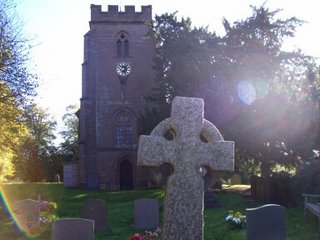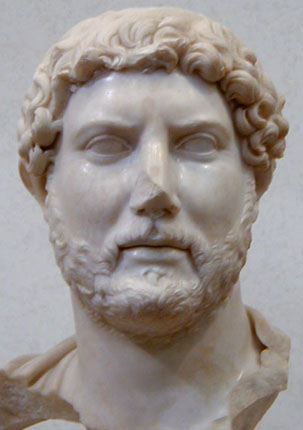 In Domestic Manners of the Americans, Fanny Trollope finds Americans a coarse and hypocritical lot, and nowhere do they exhibit more coarseness and hypocrisy than in the practice of religion. American religious fundamentalism appalls her—especially the orgiastic revival meetings, full of "beautiful young females" in the grips of religious ecstacy, swooning into the arms of opportunistic preachers. And yet Americans, she finds, are squeamish about uttering words like "corset." What a strange mixture of prudery and excess! In England, Trollope argues, the Anglican church is so much more tasteful. She writes:
In Domestic Manners of the Americans, Fanny Trollope finds Americans a coarse and hypocritical lot, and nowhere do they exhibit more coarseness and hypocrisy than in the practice of religion. American religious fundamentalism appalls her—especially the orgiastic revival meetings, full of "beautiful young females" in the grips of religious ecstacy, swooning into the arms of opportunistic preachers. And yet Americans, she finds, are squeamish about uttering words like "corset." What a strange mixture of prudery and excess! In England, Trollope argues, the Anglican church is so much more tasteful. She writes:My residence in the country [i.e., America] has shewn me that religious tyranny may be exerted very effectually without the aid of the government, in a way much more oppressive than the paying of tithe, and without obtaining any of the salutary decorum, which I presume no one will deny is the result of an established mode of worship.
Alan Bennett has observed that, in England, "whether or not one believes in God tends to be sidestepped. It's not quite in good taste. Someone said that the Church of England is so constituted that its members can really believe anything at all, but of course almost none of them do." Bennett's remark is quoted in anthropologist Kate Fox's book Watching the English: The Hidden Rules of English Behaviour. Fox herself recalls observing a mother and daughter filling out a form in a doctor's waiting room:
The daughter asked, "Religion? What religion am I? We're not any religion, are we?" "No, we're not," replied her mother. "Just put C of E." "What's C of E?" asked the daughter. "Church of England." "Is that a religion?" "Yes, sort of. Well, no, not really—it's just what you put."
Fox goes on to quote the former Archbishop of Canterbury, Dr. George Carey, who described his church as "an elderly lady, who mutters away to herself in a corner, ignored most of the time." In contrast to the pharisaical American President, who proclaims his religion on the street corners, the British Prime Minister is careful to keep his religious beliefs private. Fox writes: "Our current Prime Minister is known to be a devout Christian, an affliction we tolerate in our usual grudgingly courteous fashion, but only because he has the good sense to keep extremely quiet about it."
As I've observed earlier in this blog, America's constitutional separation of church and state has given religion (specifically, Christianity) a much more potent political influence than it has in England. The established religion sits in a corner and mutters to itself. The disestablished religion shouts and bullies.
Part of this, I suppose, has to do with the English sense of taste and decorum, their national modesty (but not prudishness, as in refusing to say "corset"), which both Trollope (1830) and Fox (2004) remark upon. This can be observed even in the English attitude toward the names of their churches. About the abbreviation "C of E" for the Church of England, Fox writes: "we prefer to use this abbreviation whenever possible...as the word 'church' sounds a bit religious, and 'England' may seem a bit patriotic."
In England, the Congregationalists and Presbyterians came together in 1972 to form a new denomination called the United Reformed Church. At the time, there was much discussion about what the new church should be called. One of the members of the clergy involved in the process has written: "[One] name suggested was United Church of Christ, as in the United States of America, but that was felt to be perhaps a little too arrogant, making too strong a claim."
This modest attitude, as Fox and Trollope would point out, is typically English.
Amazon.com:
Fanny Trollope, Domestic Manners of the Americans (Penguin Classics)
Kate Fox, Watching the English: The Hidden Rules of English Behaviour


No comments:
Post a Comment